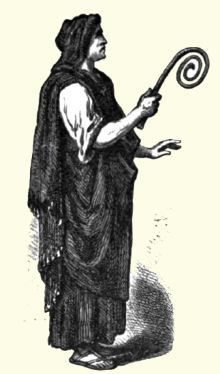|
Ius Connubii
The (‘ Canuleian law’), or , was a law of the Roman Republic, passed in the year 445 BC, restoring the right of (marriage) between patricians and plebeians. Canuleius' first rogation Five years earlier, as part of the process of establishing the Twelve Tables of Roman law, the second decemvirate had placed severe restrictions on the plebeian order, including a prohibition on the intermarriage of patricians and plebeians. Gaius Canuleius, one of the tribunes of the plebs, proposed a ''rogatio'' repealing this law. The consuls, Marcus Genucius Augurinus and Gaius Curtius Philo, vehemently opposed Canuleius, arguing that the tribune was proposing nothing less than the breakdown of Rome's social and moral fabric, at a time when the city was faced with external threats. Undeterred, Canuleius reminded the people of the many contributions of Romans of lowly birth, including several of the kings, and pointed out that the Senate had willingly given Roman citizenship to defeated enem ... [...More Info...] [...Related Items...] OR: [Wikipedia] [Google] [Baidu] |
Gaius Canuleius
Gaius Canuleius, according to Livy book 4, was a tribune of the plebs in 445 BC. He introduced a bill proposing that intermarriage between Patrician (ancient Rome), patricians and plebeians be allowed. As well, with his fellow tribunes he proposed another bill allowing one of the two annually elected consuls to be a plebeian. Despite fierce opposition from the patricians, his laws were eventually passed when the plebeians went on a military strike, refusing to defend the city against its attacking neighbors. That law, the ''Lex Canuleia,'' bears his name. The accuracy of Livy's description of Canuleius' tribunate and the Struggle of the Orders in which his laws played a major part is doubted by some modern scholars. See also * Canuleia gens * Twelve Tables * Conflict of the Orders * Roman Republic References External links Text of ''Ab Urbe Condita''at The Latin Library in Latin only *Ab urbe condita (History of Rome), Books I-III (eBook in English) at Project Gutenberg. ... [...More Info...] [...Related Items...] OR: [Wikipedia] [Google] [Baidu] |
Augury
Augury was a Greco- Roman religious practice of observing the behavior of birds, to receive omens. When the individual, known as the augur, read these signs, it was referred to as "taking the auspices". "Auspices" () means "looking at birds". ''Auspex'', another word for augur, can be translated to "one who looks at birds". Depending upon the birds, the auspices from the gods could be favorable or unfavorable (''auspicious'' or ''inauspicious''). Sometimes politically motivated augurs would fabricate unfavorable auspices in order to delay certain state functions, such as elections. Pliny the Elder attributes the invention of auspicy to Tiresias the seer of Thebes. Over the development of the Roman empire, the definition of augury broadened to include other forms of divination. Haruspicy —the examination of animal entrails—was learned from the Etruscans. The Etruscan practice of observing thunder and lightning was also adapted. In Cicero’s time, the augurs had mostly ... [...More Info...] [...Related Items...] OR: [Wikipedia] [Google] [Baidu] |
Morganatic Marriage
Morganatic marriage, sometimes called a left-handed marriage, is a marriage between people of unequal social rank, which in the context of royalty or other inherited title prevents the principal's position or privileges being passed to the spouse, or any children born of the marriage. The concept is most prevalent in German-speaking territories and countries most influenced by the customs of the German-speaking realms. Generally, this is a marriage between a man of high birth (such as from a reigning, deposed or mediatised dynasty) and a woman of lesser status (such as a daughter of a low-ranked noble family or a commoner).Webster's Online Dictionary . Retrieved 2008-07-10. Diesbach, Ghislain de. ... [...More Info...] [...Related Items...] OR: [Wikipedia] [Google] [Baidu] |
List Of Legal Latin Terms
A number of Latin terms are used in legal terminology and legal maxims. This is a partial list of these terms, which are wholly or substantially drawn from Latin, or anglicized Law Latin. __TOC__ Common law Civil law Ecclesiastical law See also * Brocard (law) * Byzantine law * Code of Hammurabi * Corpus Juris Canonici * International Roman Law Moot Court * Law French * List of Latin abbreviations * List of Latin phrases (full) * List of fallacies * List of Philippine legal terms * List of Roman laws * Twelve Tables The Laws of the Twelve Tables () was the legislation that stood at the foundation of Roman law. Formally promulgated in 449 BC, the Tables consolidated earlier traditions into an enduring set of laws.Crawford, M.H. 'Twelve Tables' in Simon Hornbl ... Notes References * Gabriel Adeleye & Kofi Acquah-Dadzie. ''World dictionary of foreign expressions: A resource for readers and writers''. Ed. by Thomas J. Sienkewicz & James T. McDonough, ... [...More Info...] [...Related Items...] OR: [Wikipedia] [Google] [Baidu] |
List Of Roman Laws
This is a partial list of Roman laws. A Roman law () is usually named for the sponsoring legislator and designated by the adjectival form of his ''gens'' name ('' nomen gentilicum''), in the feminine form because the noun ''lex'' (plural ''leges'') is of feminine grammatical gender. When a law is the initiative of the two consuls, it is given the name of both, with the ''nomen'' of the senior consul first. Sometimes a law is further specified by a short phrase describing the content of the law, to distinguish that law from others sponsored by members of the same ''gens''. Roman laws Post-Roman law codes based on Roman legislation *'' lex Romana Burgundionum'' one of the law tables for Romans after the fall of the Western Roman Empire *'' lex Romana Visigothorum'' (506 AD) one of the law tables for Romans after the fall of the Western Roman Empire General denominations *'' lex agraria'' A law regulating distribution of public lands *'' lex annalis'' A law regarding quali ... [...More Info...] [...Related Items...] OR: [Wikipedia] [Google] [Baidu] |
James Hilton (novelist)
James Hilton (9 September 1900 – 20 December 1954) was a British-American novelist and screenwriter. He is best remembered for his novels ''Lost Horizon'', ''Goodbye, Mr. Chips'' and ''Random Harvest'', as well as co-writing screenplays for the films ''Camille (1936 film), Camille'' (1936) and ''Mrs. Miniver'' (1942), the latter earning him an Academy Awards, Academy Award. Early life and education Hilton was born in Leigh, Greater Manchester, Leigh, Lancashire, the son of John Hilton, the headmaster of Chapel End School in Walthamstow. He was educated at the Monoux School Walthamstow until 1914, then The Leys School, Cambridge, and then at Christ's College, Cambridge, where he wrote his first novel and was awarded an honours degree in English literature. He started work as a journalist, first for the ''Manchester Guardian'', then reviewing fiction for ''The Daily Telegraph''. Career Hilton's first novel, ''Catherine Herself,'' was published in 1920 when he was still an un ... [...More Info...] [...Related Items...] OR: [Wikipedia] [Google] [Baidu] |
Mnemonic
A mnemonic device ( ), memory trick or memory device is any learning technique that aids information retention or retrieval in the human memory, often by associating the information with something that is easier to remember. It makes use of elaborative encoding, retrieval cues and imagery as specific tools to encode information in a way that allows for efficient storage and retrieval. It aids original information in becoming associated with something more accessible or meaningful—which in turn provides better retention of the information. Commonly encountered mnemonics are often used for lists and in auditory system, auditory form such as Acrostic, short poems, acronyms, initialisms or memorable phrases. They can also be used for other types of information and in visual or kinesthetic forms. Their use is based on the observation that the human mind more easily remembers spatial, personal, surprising, physical, sexual, humorous and otherwise "relatable" information rather tha ... [...More Info...] [...Related Items...] OR: [Wikipedia] [Google] [Baidu] |
Schoolmaster
A schoolmaster, or simply master, is a male school teacher. The usage first occurred in England in the Late Middle Ages and early modern period. At that time, most schools were one-room or two-room schools and had only one or two such teachers, a second or third being often called an assistant schoolmaster. The use of the traditional term survives in British private schools, both secondary and preparatory, and in grammar schools, as well as in some Commonwealth boarding schools (such as the Doon School in India) which are modelled on British grammar and public schools. Origins The word "master" in this context translates the Latin word magister. In England, a schoolmaster was usually a university graduate, and until the 19th century, the only universities were Oxford and Cambridge. Their graduates in almost all subjects graduated as Bachelors of Arts and were then promoted to Masters of Arts (''magister artium''), simply by seniority. The core subject in an English grammar ... [...More Info...] [...Related Items...] OR: [Wikipedia] [Google] [Baidu] |
Boarding School
A boarding school is a school where pupils live within premises while being given formal instruction. The word "boarding" is used in the sense of "room and board", i.e. lodging and meals. They have existed for many centuries, and now extend across many countries. Their functioning, codes of conduct, and ethos vary greatly. Children in boarding schools study and live during the school year with their fellow students and possibly teachers or administrators. Some boarding schools also have day students who attend the institution during the day and return home in the evenings. Boarding school pupils are typically referred to as "boarders". Children may be sent for one to twelve years or more in boarding school, until the age of eighteen. There are several types of boarders depending on the intervals at which they visit their family. Full-term boarders visit their homes at the end of an academic year, semester boarders visit their homes at the end of an academic term, weekly boarders ... [...More Info...] [...Related Items...] OR: [Wikipedia] [Google] [Baidu] |
Tribuni Militum Consulari Potestate
A consular tribune was putatively a type of magistrate in the early Roman Republic. According to Roman tradition, colleges of consular tribunes held office throughout the fifth and fourth centuries BC during the so-called "Conflict of the Orders". The ancient historian Livy offered two explanations: the Roman state could have needed more magistrates to support its military endeavours; alternatively, the consular tribunate was offered in lieu of the ordinary consulship to plebeians so to maintain a patrician lock on the consulship. Modern views have challenged this account for various reasons. No consular tribune ever celebrated a triumph and appointment of military dictators was unabated through this period. Furthermore, the vast majority of consular tribunes elected were patrician. Some modern scholars believe the consular tribunes were elected to support Rome's expanded military presence in Italy or otherwise to command detachments and armies. More critical views believe t ... [...More Info...] [...Related Items...] OR: [Wikipedia] [Google] [Baidu] |
Titus Quinctius Capitolinus Barbatus
Titus Quinctius Capitolinus Barbatus (513 BCafter 423 BC) was a Roman statesman and general who served as consul six times. Titus Quinctius was a member of the gens Quinctia, one of the oldest patrician families in Rome. He was the son of Lucius Quinctius and grandson of Lucius Quinctius. He was possibly the brother of Lucius Quinctius Cincinnatus, who was suffect consul in 460 BC, and dictator in 458 BC and 439 BC. His son, who bore the same name, Titus Quinctius Capitolinus Barbatus, was elected consul in 421 BC and was possibly the military tribune with consular power in 405 BC. According to Livy, Titus Quinctius was still alive in 423 BC, aged 90 years. Consulships First Consulship In 471 BC Titus Quinctius was elected consul with Appius Claudius Sabinus as his colleague. The latter was chosen by the Senate because of his uncompromising character as well as his father's hostility towards the plebs. Appius was expected to lead the fight against the bill proposed by ... [...More Info...] [...Related Items...] OR: [Wikipedia] [Google] [Baidu] |



